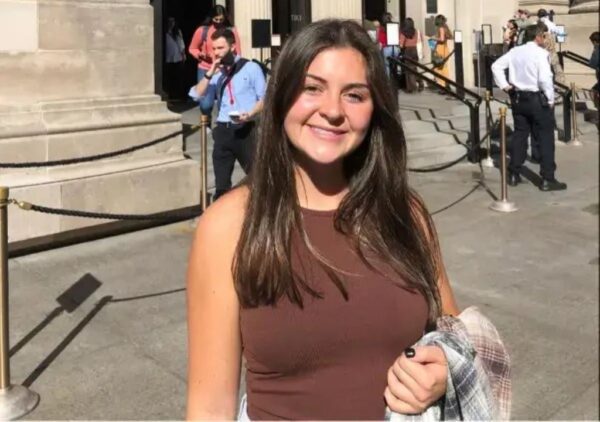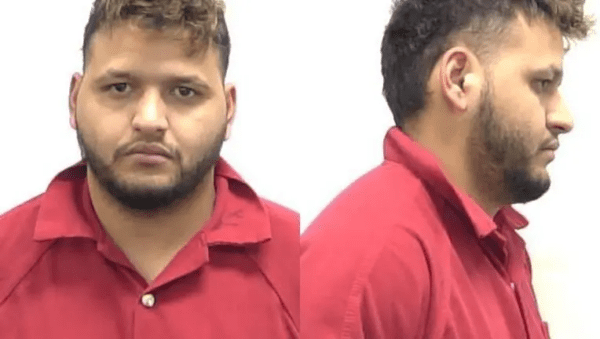Slain Georgia nursing student Laken Riley “fought for her life” for a staggering 18 minutes before her skull was crushed by an illegal migrant, prosecutors said Friday — as opening statements got underway for the shocking murder case that was a cornerstone of the presidential election.
Riley, 22, was found viciously murdered on the University of Georgia campus on Feb. 22, shortly after her friend reported that she had not returned from her morning run.

Laken Riley
On the first day of the bench trial, prosecutors claimed that suspect Jose Ibarra, 26 — an illegal migrant linked to the violent Venezuelan Tren de Aragua prison gang — smashed Riley’s head in and asphyxiated her when she resisted his sexual attack.

Jose Antonio Ibarra
“He went hunting for females on the University of Georgia campus, and on his hunt, he encountered 22-year-old Laken Riley on her morning jog,” said prosecutor Sheila Ross, with Riley’s family in the gallery.
“When Laken Riley refused to be his rape victim, he bashed her skull in with a rock repeatedly.”
Riley — who had recently transferred to Augusta University after three years at UGA — “fought for her life,” the prosecutor told the emotionally charged courtroom.
Riley struggled with Ibarra for nearly 20 minutes, from 9:10 a.m. until her heart stopped at 9:28 a.m., according to heart rate readings and data from her GPS running watch, Ross said.
“She fought for her dignity, and in that fight, she caused this defendant to leave forensic evidence behind. She also marked her killer for the entire world to see,” Ross said.
“Her encounter with him was long. Her fight with him was fierce.”
After lunch, the judge was shown photos of Ibarra’s scratch injuries that were taken the day after Riley’s murder.
The images showed cuts on his hands, wrists and arms. Riley had Ibarra’s DNA under her fingernails, prosecutors said.
Riley also managed to call 911 in her final moments, and the eerie audio was played in court.
Only a male voice was heard on the brief, muffled audio before the operator’s voice can be heard searching for the caller.
“Clark County 911. Hello, Clark County 911. Can anyone hear me?” the operator says.
The call ended at 9:12, and the operator tried to call back but received no answer, Ross explained.
Riley’s mother, Allyson Phillips, sobbed as the audio played.
Ibarra, according to prosecutors, left his fingerprint behind when he ended the call — and cut off his would-be victim’s cry for help.
Riley’s mother and sister began openly crying when the state displayed surveillance photos of the young woman leaving for her jog shortly before she was attacked.
Riley’s family did not return to court after the lunch break, having weathered a morning of increasingly brutal information that included crime scene footage of Riley’s battered, bruised body.
Ibarra, meanwhile, slouched in his seat while the trial was translated for him through headphones.
Just before disturbing body cam footage taken from the cop who found Riley’s lifeless body was about to be played for the courtroom, Judge H. Patrick Haggard — who is deciding the trial, rather than a jury — warned everyone that they could leave if the footage would be too upsetting.
“I suspect what we are about to see is the victim’s body,” Haggard said. “I’m going to offer for anyone that’s here to step out if you want to do that. I’ll pause in order to allow you to do that.”
Riley’s mother and a few other supporters walked out of the courtroom and at points Riley’s stepdad covered his eyes during the footage, showing an officer finding her body 50 feet off of a trail.
Sgt. Kenneth Maxwell — with the UGA Police Department — testified that Riley’s torso was exposed, with her shirt up above her chest.
The video showed Maxwell’s attempts at reviving her with CPR failing.
“I’m not getting any pulse. She’s stiff,” Maxwell can be heard saying in the video. “Looks like blunt force trauma to the head.”
The video also showed a gash in Riley’s skull.
{snip}

 By American Renaissance | Created at 2024-11-18 19:20:30 | Updated at 2024-11-18 21:46:21
2 hours ago
By American Renaissance | Created at 2024-11-18 19:20:30 | Updated at 2024-11-18 21:46:21
2 hours ago







